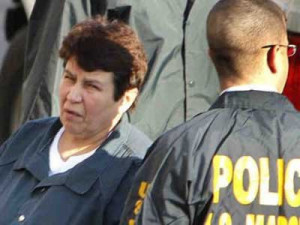U.S. Federal appeals judges have recently upheld a decision allowing the extradition of Azra Basic to Bosnia and Herzegovina, a Muslim Croatian woman accused of murder and torture during the 1992-1995 Bosnian War.
Basic had challenged a ruling by U.S. District Judge that said Basic could be deported to face trial in Bosnia and Herzegovina.
Basic came to the United States as a refugee in 1994. She settled in Kentucky and became a naturalized citizen in 2007.
Basic’s attorney argued that a treaty does not allow extradition of U.S. citizens to Bosnia and that Bosnian authorities did not issue a proper arrest warrant for her.
The U.S. 6th Circuit Court of Appeals disagreed, ruling that the treaty in place between the United States and Bosnia does not bar Basic from being extradited.
The Court of Appeals also said that while there was no warrant of arrest against Basic as such, other documents in the file constituted a valid warrant.
However, Basic’s lawyer indicated that he will challenge the extradition in front of the U.S. Supreme Court. The extradition will be on hold until the decision of the Supreme Court.
If the Supreme Court ultimately decides Basic can be extradited, the U.S. Secretary of State would still have to decide whether to send Basic to Bosnia to be tried.
After being subjected to atrocities in a Serbian prison camp during the Bosnian War, Basic would have joined the Croatian military forces.
The Bosnian authorities submit that she murdered one civilian and tortured three others in 1992.
Witnesses said she took part in killing one man by stabbing him in the throat and forcing other prisoners to drink his blood.
Basic’s lawyer says she took part only in regular military actions against opposing soldiers, and denies being involved in war crimes against soldiers or civilians.
The judges said evidence was mixed on whether the people Basic is accused of attacking were soldiers. However, there is sufficient evidence for a finding that they were civilians and that she could be extradited to face trial, the judge ruled.

